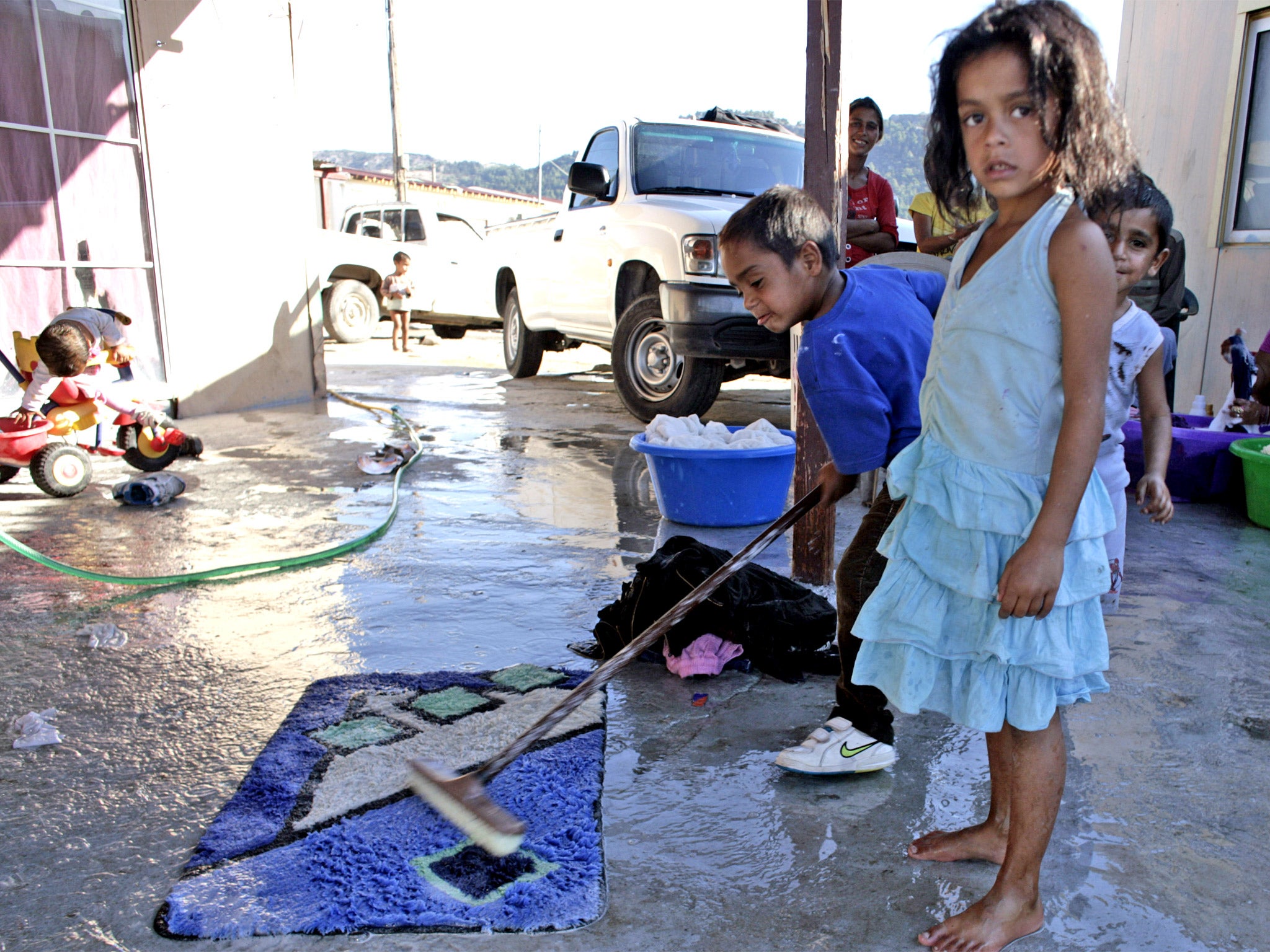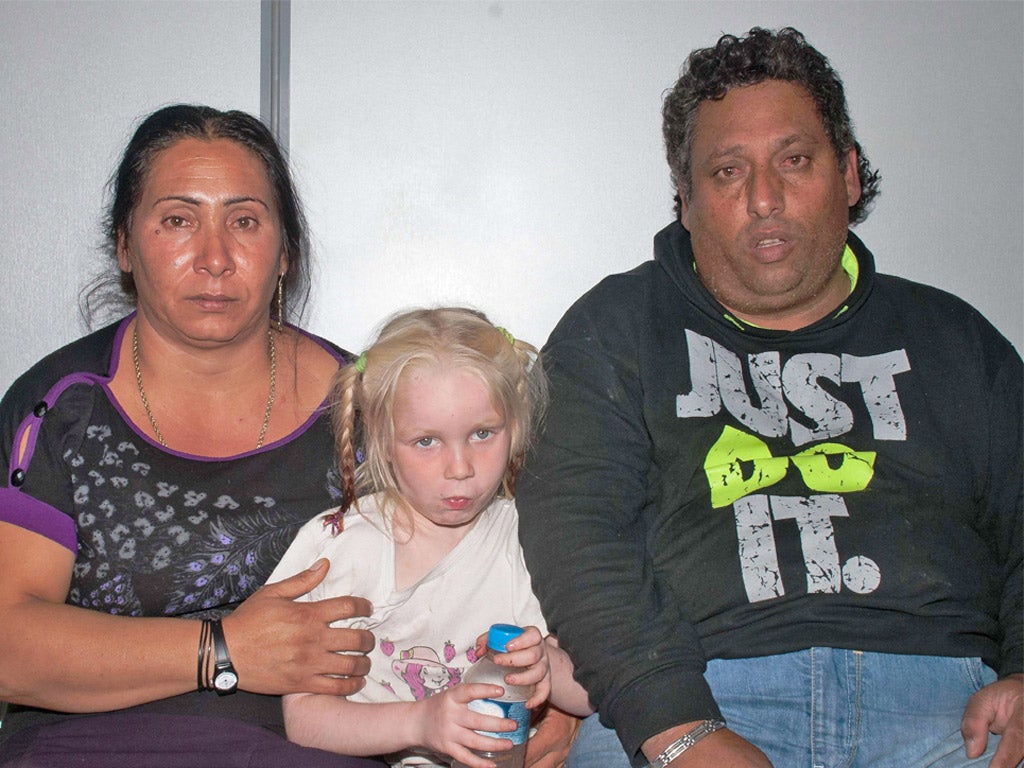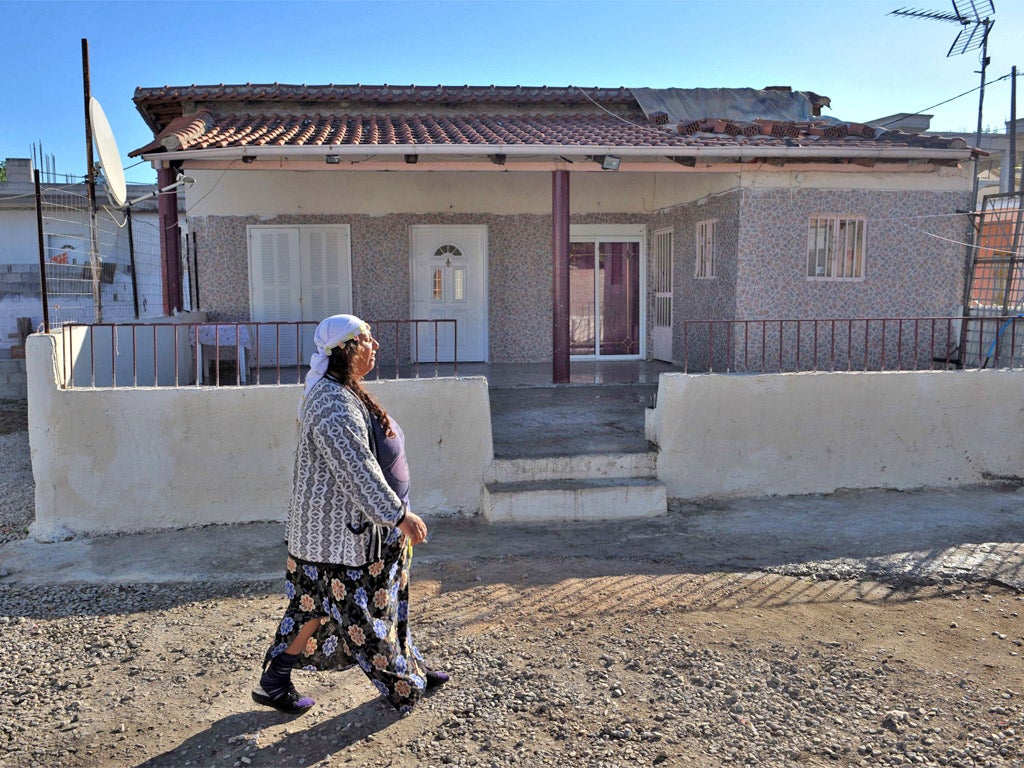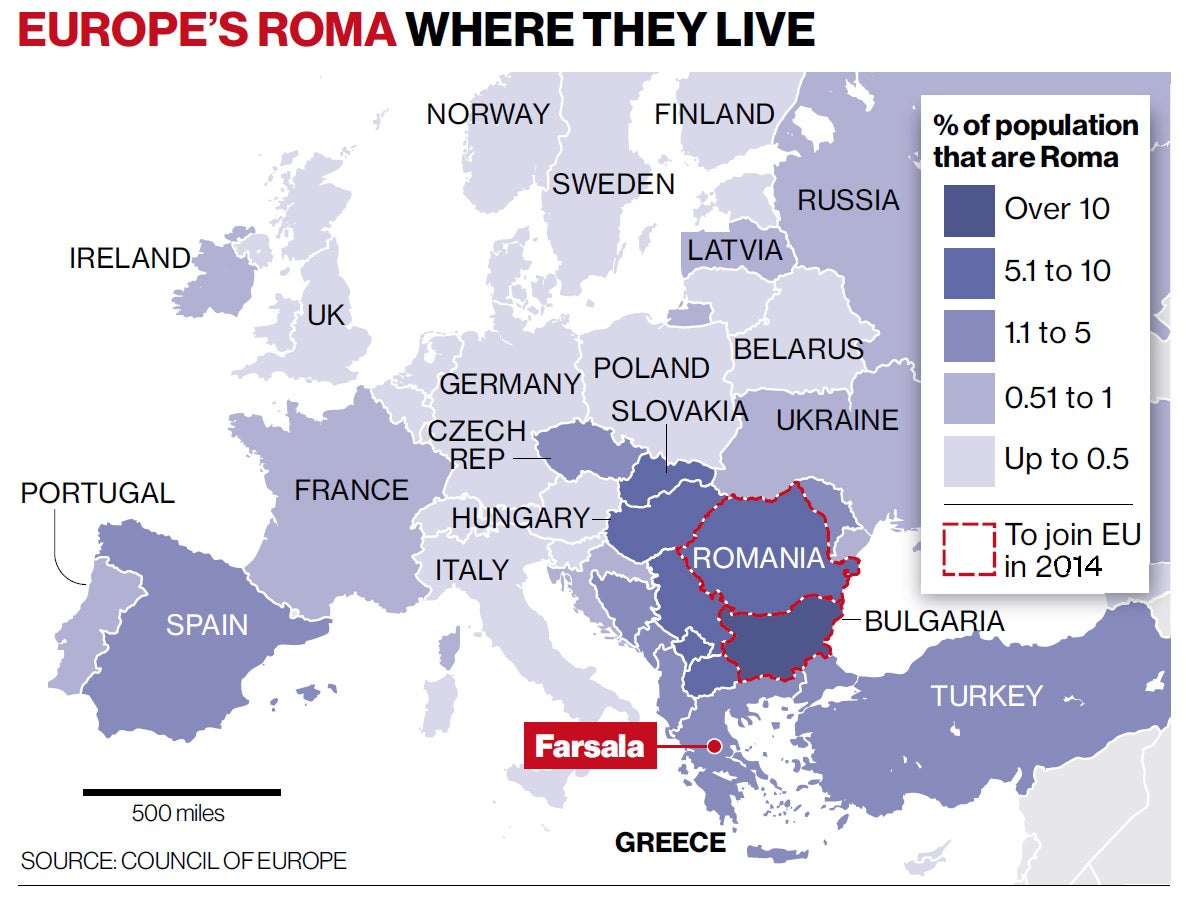Old attitudes resurface in Greece: inside the Roma camp where Maria the ‘blonde angel’ lived
Anger and defiance in Greece after a case that has reignited prejudices

Your support helps us to tell the story
From reproductive rights to climate change to Big Tech, The Independent is on the ground when the story is developing. Whether it's investigating the financials of Elon Musk's pro-Trump PAC or producing our latest documentary, 'The A Word', which shines a light on the American women fighting for reproductive rights, we know how important it is to parse out the facts from the messaging.
At such a critical moment in US history, we need reporters on the ground. Your donation allows us to keep sending journalists to speak to both sides of the story.
The Independent is trusted by Americans across the entire political spectrum. And unlike many other quality news outlets, we choose not to lock Americans out of our reporting and analysis with paywalls. We believe quality journalism should be available to everyone, paid for by those who can afford it.
Your support makes all the difference.Some of the houses in the Roma settlement near the central Greek town of Farsala resemble containers – the kind that would usually be found on ships. Outside, groups of children are playing and laughing in the early evening. Inside, the mood is more sombre as their parents watch the latest developments of a case that is very close to their hearts unfold on television.
"They call us Roma on the TV but in the streets they shout out Gypsy, spitting and walking away from us," says Maria, a 20 year-old Roma mother of one. A sparkling golden coloured pin holds her long blonde hair in a bun, her fair cheeks are flush with pique and her fists are restless as she places them in the pockets of her white jumper. "The press says we dance like monkeys or bears, just because we're celebrating - they want to ridicule us."
Maria is livid. She feels her community is being vilified by Greek and international media after the fair-haired infant, who is now known across the world as "Maria", was found with a Roma couple who claimed to be her parents at the settlement.
Authorities conducting a raid on the Farsala Roma community in search of drugs and weapons last week became suspicious when they caught sight of "Maria" - the child's fair skin and green eyes starkly differed from the physical characteristics of the couple who claimed to be her parents. They took the infant, who is believed to be around five years-old, and arrested the adults.
Subsequent DNA tests revealed she is not related to the couple, identified as 39-year-old Christos Salis and 40-year-old Eleftheria Dimopoulou, who is also known as Selini Sali. They have been charged with abducting the child and falsifying documents.
Across the street from the container ship homes, modern houses are slowly replacing the shacks where the community used to live. Many Roma in this community make a living from selling carpets, clothes or fruits. "Maria" and the couple lived in a tiled house that appears comfortable. Relatives say "Maria" bedroom is decorated in bright pink an her bed covered in teddybears.
From this tiny settlement, the tale of little "Maria" has travelled across the world, attracting global interest and sparking an international search for the child's biological parents. But it has also highlighted the deep rift and mistrust between the Roma community and other Greeks: two worlds that live side-by-side yet know little about each other.

In the video of the two Marias, the 20 year-old Roma woman sways to traditional clarinet music, while the blonde child stands beside her, only moving occasionally. From the footage, some media outlets have suggested the child's parents were forcing her to dance in hopes of making money. The inference has prompted fury across the Roma community - the footage was taken after a baptism and a religious celebration.
It is not only the media's representation of events that have stoked racial tensions. The Roma couple, now in pre-trial detention, have said they were handed the child by a fair-skinned Bulgarian Roma woman who said she could not care for her. Police say both adults have given conflicting accounts of how the child came to live with them, and the investigation is on-going.
But a human rights expert says the prosecution against the parents is "disgusting and condemnable" as it is based on appearances. "Maria" is not on Interpol's list of missing children and there have been no claims that she was kidnapped.
"It is a racist presumption on behalf of the Greek authorities… to charge her family with abduction just because they are Roma and because it was proven that [she] is not their own natural child," says Panayote Dimitras, spokesperson from the Greek Helsinki Monitor organisation.
The European Court of Human Rights has found that Greece, alongside countries such as Bulgaria, Czech Republic and Hungary, has segregated its Roma communities. The Romani people (of whom Roma are seen as a subgroup) trace their ancestors to India, and have lived nomadically for centuries across Europe. Integration has been marked with numerous difficulties, partly because of their strong attachment to their own culture, language and habits, which has contributed to their isolation.
In some Roma settlements, illegal activities such as drug dealing and the trading of stolen goods are known to take place. But many protest that criminal elements represent only a small fragment of the community.

The Roma couple charged with abducting little "Maria" are illiterate, and had registered their family in several towns. They claimed they had 14 children, making declarations that would have meant Dimopoulou would have had to have given birth to six children in less than 10 months. Ten of the 14 children are unaccounted for.
Police have said the two suspects received around €2,500 euros ($3,420) a month in child welfare subsidies from three different cities. The director of Athens' records office and two senior officials have been suspended while an investigation takes place. It is not uncommon for such papers to be falsified in Greece, by people from all walks of life.

Dozens of people from the Roma community in Farsala who know the family, told The Independent the couple looked after little "Maria" well and cared for her deeply.
"We're poor nomads and we may not know letters but we love and look after our children," said one Roma woman as she carried her granddaughter in her arms. Around her, groups of young children swirled, were laughing and playing in the early hours of Monday evening. Nearby, a man fixes his car while his wife cleans the windows of their home.
"They think we're inferior because we're gypsies, but we're also Greek," says the woman, who gives her name as Argyro.
Christina, aged 7, is wearing bright red reading glasses as she does her homework. Romanis usually marry at an early age and most girls are kept at home, but slowly things in this Farsala Roma community are changing. Christina is the first girl of her family to go to school. Her mother, Paraskevoula, peers over her daughter's shoulder - she is also learning to read.
Stefania Pantazi, a social worker at Praksis, who has been working in and out of Roma settlements for the past 12 years, says Greek Roma are no more involved in child abuse or trafficking than any other community. She says many Greeks have grown up with unfounded folk stories of "Gypsies snatching kids", which have created a stigma and further isolation of the Roma group.
"You don't need to share the same blood to be family," Marinos, 23, a relative of the accused told The Independent. He says all the family loved the little girl as their own, tending to problems with her eyesight by taking her to opticians.
Marinos says he fears the girl's biological parents would now be too scared to appear before the police. He claims his wife's parents had begun proceedings to legally adopt "Maria" but their lawyer died before completing the process.
Young "Maria", who speaks very little Greek, is now at a hospital in the care of a Greek charity, where she has been undergoing tests to ascertain her real age.
Although the child was initially distraught after being taken, a spokesman from the charity said she is now calm. Since it published Maria's picture, it has received thousands of calls and emails from parents around the world, hoping that she may be their lost child.
Join our commenting forum
Join thought-provoking conversations, follow other Independent readers and see their replies
Comments